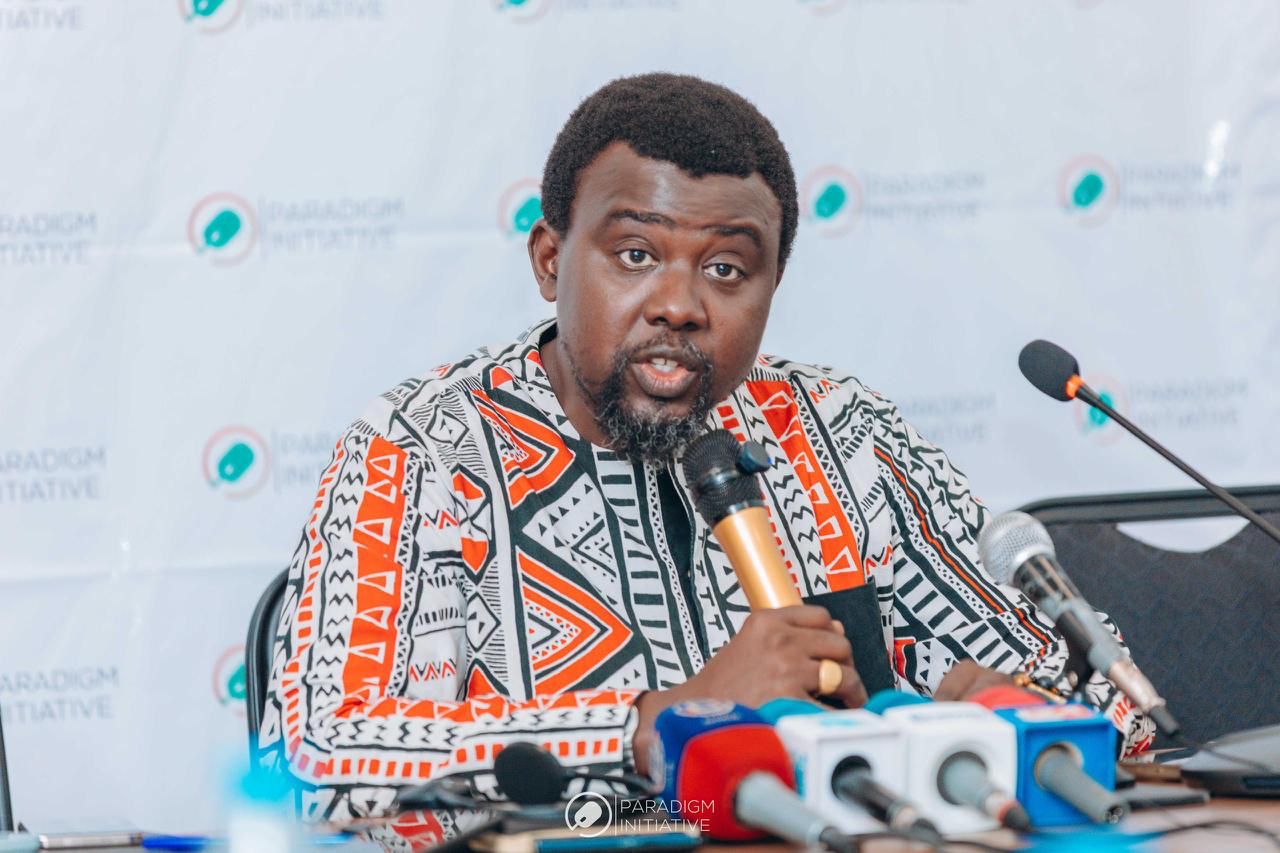Paradigm Initiative, a prominent Africa-wide digital rights organization, has expressed concern over what it describes as a growing pattern of repression targeting journalists, civil society actors and ordinary citizens through online harassment, internet restrictions and criminalization of dissenting views.
As Cameroon prepares for its highly anticipated presidential elections expected to take place in October this year, digital rights watchdog, Paradigm Initiative, PIN, has raised alarm over the increasing clampdown on online freedoms. Speaking during a press conference in Yaoundé on Tuesday, April 15, the organization’s Executive Director, Gbenga Sesan, called for urgent, collective efforts to protect digital rights in the country.
The head of PIN, which is a prominent Africa-wide digital rights organization, expressed concern about what he described as a growing pattern of repression targeting journalists, civil society actors, and ordinary citizens through online harassment, internet restrictions, and criminalization of dissenting views.
“We are witnessing an alarming rise in digital rights violations,” Sesan told pressmen. “From internet shutdowns to the criminalization of online speech, the government’s increasing clampdown on free expression poses a serious threat to the democratic process.” PIN cited several incidents it believes reflect the deteriorating state of digital freedoms in Cameroon.
Among the most notable was a government directive issued in October 2024 banning public debate about President Paul Biya’s health. The Ministry of Territorial Administration categorized such discussions as a matter of national security and instructed regional governors to monitor traditional and digital media for violations. Legal sanctions were threatened against individuals and outlets deemed non-compliant. “This level of censorship sets a dangerous precedent,” Sesan said, warning that such measures could compromise the transparency and credibility of the upcoming elections.
Media, civil society, opposition under pressure
PIN also pointed to recent actions taken against media outlets critical of the government. In early 2025, the National Communication Council, NCC, suspended Équinoxe TV’s political program Droit de Réponseover accusations it tarnished the image of government ministers. A substitute show, Le Débat 237, was also banned shortly after its debut. Journalists associated with both programs reportedly faced threats and went into hiding to avoid arrest. “These acts of intimidation against the press stifle independent journalism and reduce the public’s access to unbiased information,” Sesan noted. Civil society organizations have not been spared.
In December 2024, the Ministry of Territorial Administration suspended the Central African Human Rights Defenders Network, REDHAC, one of the region’s most vocal rights groups. No justification was offered, a move widely condemned as an assault on freedom of association. Political opposition has also been subjected to government crackdowns. In March 2024, two political coalitions, the Political Alliance for Change, APC, and the Political Alliance for Change in Cameroon, were banned and labeled as “clandestine movements.” Critics argue that the bans are part of a broader strategy to marginalize dissent and opposition ahead of the election.
In addition to government suppression, Sesan warned about the rise in disinformation campaigns targeting opposition groups. Researchers have uncovered fake social media accounts and foreign-backed influence operations disseminating false information to discredit opposition candidates and mislead voters. “These campaigns are designed to distort political discourse and undermine the electorate’s trust,” Sesan cautioned. “It is crucial that the digital space remain open and credible, especially in an election year.”
A call for collective responsibility
In its statement, Paradigm Initiative called on all stakeholders including government institutions, telecom operators, political parties, and civil society groups, to safeguard digital rights and ensure a free, open, and inclusive electoral process. “We urge the government to end arbitrary internet shutdowns during this critical period,” said Sesan. “Access to information is a fundamental human right and should not be manipulated to stifle opposition or restrict public discourse.” PIN also called for the review of vague legislation used to criminalize online expression.
The organization urged telecom providers to be transparent about government requests for shutdowns or data access and to uphold users’ rights. Political parties and candidates were encouraged to use digital platforms responsibly, avoiding the spread of disinformation, respecting press freedom, and promoting inclusive engagement. Finally, Sesan urged Cameroonian citizens to play an active role in preserving digital integrity.
He advised the public to be vigilant against disinformation and avoid sharing divisive content. “As the digital space continues to shape public opinion, it is crucial for all actors to work together to ensure a fair and transparent election,” he concluded. With the October 2025 polls drawing closer, Paradigm Initiative’s message is unequivocal: protecting digital rights is essential to preserving democracy in Cameroon.

